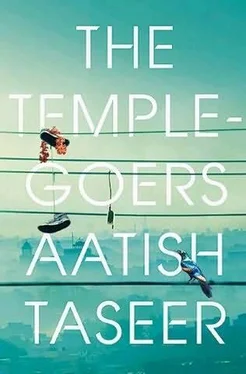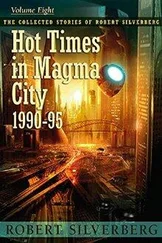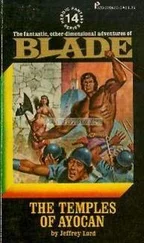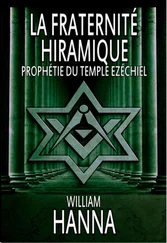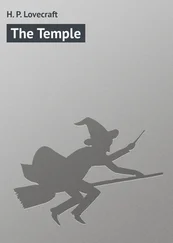‘Tomorrow?’
‘Today,’ he said, and laughed.
He leaned in to give me a hug as Uttam drove up. Then pressing the side of his face against mine, he held it there. Its bones were hard and its stubble rough, but it was also tremulous and wet with tears.
The atmosphere of fable that the jagran awakened carried over into the next day. The city awoke to television images of policemen in olive green wading through a hyacinth-choked canal in Sectorpur, its banks thick with keekar. In the background were the power station’s iron men with electric cables slung between them. In the foreground, four black bin bags. They were marooned among the hyacinths, bobbing, rolling over on to their side, suddenly straightening up with the policemen’s touch, like four happy ducklings in the misty sunshine.
The policemen took cautious steps into the canal’s poisonous water. The bin bags playfully resisted their capture, slithering away just as one of the men was about to get hold of the rope that tied them to each other. Only the stillness of the camera’s eye brought some gravity to the scene. The country’s three main news channels all claimed to have been tipped off but were vague on details. TVDelhi’s red scrolling banner said no more than ‘Scare at Power Station’.
I had woken late at Sanyogita’s and watched in my pyjamas. Sanyogita had gone out, and Vatsala brought me some toast and orange juice. My head was still soft with sleep and the winter sunshine pouring into the room made me want to prolong the feeling of morning. The light in Delhi had changed; it came now from another angle, and far from striking the surface of buildings, seemed to lose its footing on rooftops and columns. And though it was warm, you could sit in it for hours without breaking into a sweat. Hazy and scented with smoke, it rose like a glow from the city, heightening the sensory power of the Delhi winter. The bougainvillea, the occasional smell of kebabs, the wail of a garbage collector created so acute an impression that it was as if some part of an old photograph, having shed the inertia of years, had gently begun to move.
I watched the news unthinkingly for many minutes, but when the channels gave up on the bin bags, I did too and switched to a feature film. I had begun to doze again when I roused myself purposefully and went to have a shower. The puzzling effect of staying up late, sleeping for a few hours, getting up in the early hours of the morning, then sleeping again, and now entering my third morning in a single day, brought on a kind of reverie. The glass doors of the shower had steamed up and yet, through their foggy walls, I could see the orange bars of a bathroom heater. And it was through this pleasant blur of heat and water that Sanyogita’s cry broke, not a piercing cry, but a haggard groan, with many dying falls.
It was followed by the slamming of a door, a charge through our bedroom and the bathroom door being wrenched open. As she entered, I think she must have tripped over the heater, kicked it aside, straightened it, and then perhaps known the unreasonable, synaesthetic confusion of feeling you can’t be heard in a steamy room. But I heard her. I heard her cry, ‘Baby, oh God, baby, they killed that girl,’ then bitterly, ‘Your friend killed that girl.’
I let a second pass, in which I felt a strong desire for privacy. I turned the tap slowly, feeling in the abrupt cessation of hot water the mood beyond the cubicle.
‘Baby, can you give me a towel?’
Sanyogita stared bleakly at me, then found me a towel. I wiped myself thoroughly, and wrapping the towel about my waist, took her hand and walked back, past my locked study, into the room with the television.
TVDelhi’s red scrolling banner had changed from ‘Scare at Power Station’ to ‘Another Grisly Murder in Sectorpur’. The screen, when it wasn’t showing a small photograph of Megha laughing, her rounded, milky teeth visible over wet lips, a caption below reading ‘1982-2008’, showed Aakash, arm in arm with two policemen, his eyes half-open and burning, as they became when he was tired and hungry. He was still in his capris and beige and white knit T-shirt; his shoulders, sandwiched between the thin, forceful limbs of the policemen, appeared larger than usual. The colony, with its peach-coloured buildings, was visible behind him, as was the white tent with its scalloped red skirting. I was finding it difficult to stave off the confusion of having recently been present at a place that was now on television when the phone rang. This, at least, was something to hold on to.
‘Hello, Aatish?’ said an unfamiliar voice from an unfamiliar number.
‘Yes.’
‘Sparky Punj here.’
‘Sorry?’
‘We’ve met in Junglee. I’m one of Aakash’s clients.’
Of course I remembered him: tall, lanky man with a handlebar moustache, a white towel perpetually around his neck. Sparky Punj, the lawyer and Aakash’s prized client. Among the very few in Junglee to whom he gave preferential treatment over me.
‘Yes, yes, of course,’ I said, walking away, Sanyogita’s eyes desolately trailing me. ‘Have you spoken to him? I was just going to try calling, but -’
‘His phone’s off, buddy,’ Sparky inserted quickly. ‘Do you have a minute?’
A few minutes later, I was hurriedly getting dressed as Sanyogita fired questions at me.
Did he kill her?
I don’t know.
But is she dead?
Yes.
Who was that?
A lawyer called Sparky Punj.
What does he want?
He wants me to come and see him.
What for?
I don’t know. He wants to help Aakash.
Oh, so you think Aakash is innocent?
I don’t know. I’m just going to hear him out.
You’re on his side, aren’t you? It could have been me and you would be on his side. Yes?
No, I’m not on anyone’s side, but what is the harm in seeing what the deal is?
Silence.
So where are you going?
Just down the road, in fact. He lives in Jorbagh.
Silence. A softening of tone.
Do you want me to come?
No, baby. I think you’d better not. I’ll be back very soon.
Sparky Punj was not home when I arrived at his single-storey bungalow. A servant in white showed me past darkened sliding doors into a wood-panelled study with black leather sofas, a glass coffee table and a brightly coloured Souza on the wall. A dim picture light fell over the painting. A few rays escaping from its brass tubular frame entered the crystal boat and dagger objets on the coffee table. I was fingering the line of prominent brass studs that ran along the sofa’s arm when nearly an hour and a half later Sparky entered. He was all in white, down to the socks in his black leather shoes. He wore collapsible spectacles, connected at the bridge with the help of a magnet, behind which the eyes, darkened around the sockets, were afflicted with a tic, causing him to blink rapidly when he spoke.
‘Aatish. Good, buddy. Glad you made it. Here, take a look at this,’ he said, tossing me the afternoon paper. It was folded in four to Shabby Singh’s column, ‘The long arm of the divine Chamunda’. At the centre was a picture of the canal from which the four bin bags containing Megha’s body had been retrieved. There was a police line encircling the crime scene and a crowd around it. The column detailed, with some relish, the problems a small breakaway state like Jhaatkebaal could face when, by virtue of being on the border of Delhi, it experienced sophisticated urban crime in its jurisdiction. But Sparky didn’t wish me to read the column at all.
‘Look at that picture, buddy,’ he said, crouching next to me. ‘You know who that guy is?’ He picked out a balding man with a moustache from the crowd scene in the main photo. He stood outside the police line, wearing khaki trousers and a black leather jacket.
Читать дальше
